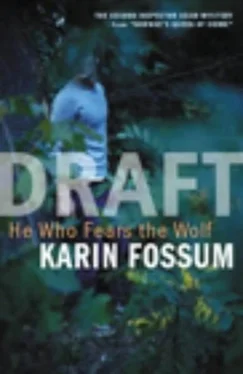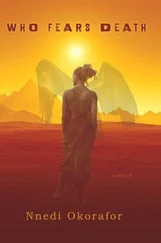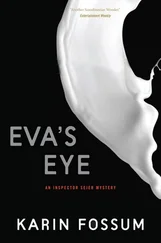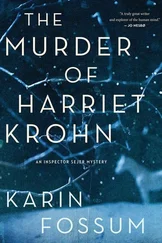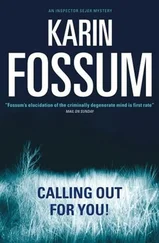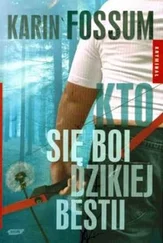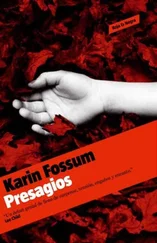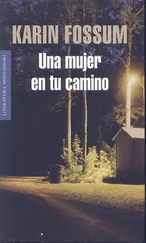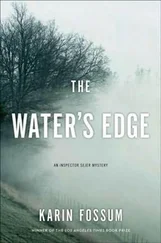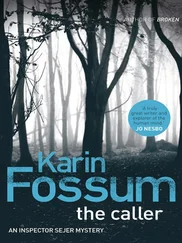He didn't know how long he had been walking, but eventually he gathered his courage and went to stand in the doorway. He hesitated and then opened the door. Bright sunlight flooded the clearing. He lowered his eyes and took a cautious step out onto the stone steps, then made his way through the deep grass. He stopped and sniffed up at the pine cones and down at the thicket of ferns and bracken. Root, stem and leaf. At last he was in motion again, though he didn't know where he was going or what he would do. Nestor was guiding his steps through the undergrowth towards civilisation.
It was still early morning. Only the early-risers had got out of bed. They had opened their curtains and looked out at the radiant day. Hot. Bright. Shimmering green. They made optimistic plans for the day, wanting to take advantage of the beautiful weather of the ail-too brief summer. One of them was Halldis Horn. She lived alone on a little farm not far from the old Finnish cabin. As Errki took his first steps through the grass, she was pulling her nightgown over her head.
Both the first and the second bloom of youth had long since passed, and she was much too heavy, but for a few unprejudiced souls she was definitely still a looker. Tall and plump and full-breasted, with a grey braid that hung like a thick iron rope down her back. She had a round face with good colouring, cheeks like red roses, and her eyes had retained their flashing brightness even though she was old.
She went through her living room and kitchen and opened the door to the courtyard. She lifted her face to the sun, squinting, and stood on the steps for a moment, in her checked apron and wooden clogs. She wore brown, knee-high stockings, not because it was cold but because she thought women of her age shouldn't show too much flesh, and even though no-one ever came to her house except for the grocer once a week, there was always Our Lord and His eternally present gaze. For better or worse, to put it bluntly, because although she was a believer, she did send Him angry thoughts sometimes, and she never asked for His forgiveness. It was the invasion of dandelions that she was looking at now. The whole yard was full of them. They seemed to spread like a rash, polluting the entire garden, which she tended so carefully. Twice each summer she would root out the weeds with a hoe, hacking at one plant after the other with furious blows. She liked to work, but once in a while she would complain, just to remind her blessed husband what kind of mess he had left her in by falling dead at the wheel of his tractor, the result of a clot the size of a grain of rice in an artery. That her tough and solid husband, a mountain of muscles, could be felled in such a way was beyond her understanding, even though the doctor had tried to explain it. She found it as impossible to believe as the fact that a plane could fly, or that she could ring her sister Helga in Hammerfest way up north and hear her plaintive voice so clearly.
She had better start before it got too hot. She found the hoe and carried it out to the yard. Shaded her eyes with her hand and scanned the area to plan her route. Decided to start near the steps and work her way in a fan formation past the well and over to the shed. In the hall she found a bucket and rake. She established a swift rhythm, hacking steadily at the weeds until she was tired, giving each plant two or three chops, then slowing the tempo, filling the bucket and emptying it on the compost heap behind the house. Ashes to ashes, she thought, giving the bottom of the bucket a hard thump. Then she went back to hacking. Her wide behind pointed towards the sky and swayed in time with the rhythm of her hoe. The red and green checks of her apron fluttered gently in the sun. Her brow was damp with sweat, and her braid kept swinging forward over her shoulder. She usually wore it pinned up, coiled around like a shiny snake, but not until after morning chores.
She liked the sound she made, hacking through the grass. The hoe was as sharp as an axe; she had sharpened it herself. Now and then she hit a stone, and winced at the thought of the shiny blade with its razor-thin edge. The weeds lay like fallen soldiers on a battlefield as she worked her way forward. She didn't sing or hum. She had enough to do just carrying out her task, and besides, the Creator might end up thinking that life was going too well, and for Halldis that would be an exaggeration. In her mind she set the table. Home-baked bread and her own brown whey cheese made from goat's milk.
She straightened up. Several birds shrieked high above the trees, and she thought she heard a swishing sound and then something falling through the leaves. Then silence. She paused for a while and stared, stealing a few moments of rest and letting her eyes glide over the woods, where she knew every single tree. In the familiar pattern of black trunks she thought she saw something dark. Something that had not been there before. An irregularity.
She narrowed her eyes and stared intently, but since it didn't move, she dismissed it as illusion. Her eyes stopped on the well. The grass around the pump was tall and untidy; maybe she should cut it later. She bent to the work again, this time with her back to her front door. The sun was getting hot, even though it was early. Her wide backside was baking in the sun, and the sweat tickled as it ran down the inside of her thighs. This was Halldis Horn's life. Solving one problem, then another, as they appeared, without grumbling. She was the type of person who never questioned the Creation or the meaning of life. That wasn't proper. And besides, she was afraid of what the answer might be. She kept on hacking, making her bottom shake. Up the slope, hiding behind a tree, watching, stood Errki.
*
The woman fascinated him. Like heavy spruce trees, she grew out of the earth. Behind her he could hear her sound, a lonely, majestic trombone. For a long time he stood and devoured her with his eyes: her round shoulders, the fluttering dress. He had seen her before. This was someone who lived alone, he knew that. Someone who seldom spoke and listened only to the wind, or the screeching of the magpies. He took a couple of steps, making a few twigs crack. The sound of the hoe grew sharper. He fixed his eyes on her hands, thick fingers and wrists. The force of the blade as it sliced through the grass was fearsome and had nothing feminine about it. As he moved, without a sound now, he could tell that the woman gradually became aware of something alive approaching her. People who live alone develop an acute awareness of their surroundings. Her rhythm changed, becoming first slower, then faster, as if to deny that something was about to happen. She stopped and straightened up. Suddenly she caught sight of him. Her body stiffened. She stood as taut as a bow, her chest heaving. A cord of fear trembled between them. Her hands wrapped tighter around the hoe. Her eyes immediately widened, then turned narrow and hard. There was not much she was afraid of in the world, but just at that instant she felt uneasy.
He came to an abrupt halt, wanting her to keep on working. The only thing he wanted was to watch her as she carried out the simple task, to observe her rhythm and her wriggling backside. But Halldis was alarmed. Errki recognised all the sharp signals she was sending out and stopped short, his fists clenched, incapable of moving. Her gaze struck him like a rain of arrows.
*
The sun continued to climb, relentlessly blazing down on man and beast and the crackling dry forest. Community police officer Robert Gurvin sat alone, lost in thought. He opened a button on his shirt and blew at his chest. Sweat trickled down his neck. He tried to push back a lock of hair from his forehead, but it refused to stay put. He gave up and tried instead to slow his heart rate by focusing his thoughts. He had heard that old Indians could do this, but all the concentrating just made him sweat more.
Читать дальше
